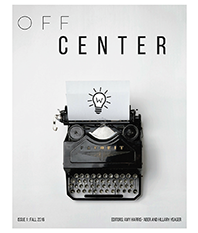SWC 9: Writing Personal Statements for College Admissions
What is a personal statement?
A personal statement is a way to introduce yourself to a college admissions committee.
It helps the admissions personnel get a better idea of an individual’s qualifications,
goals, values, and fit for the program.
Is there more than one type of personal statement? Yes.
Open-ended prompts:
- These allow applicants to decide the direction(s) they want to take.
- Prompts may include broad questions like:
- Why do you want to attend this university?
- What are your goals?
- What is something you value and why?
- Prompts may also remain general while providing slightly more structure:
- “Some students have a background, identity, interest, or talent that is so meaningful they believe their application would be incomplete without it. If this sounds like you, then please share your story.”[1]
-
“The lessons we take from obstacles we encounter can be fundamental to later success. Recount a time when you faced a challenge, setback, or failure. How did it affect you, and what did you learn from the experience?”[2]
Specific prompts:
-
These allow applicants to respond to a specific topic, issue, or question such as:
- What is a book you love? How has it impacted you? In what way(s) do you identify with the text/characters?
- What extracurricular activity has had a significant impact on your life?
- Is there a particular moment in your life that has made you who you are today? What was the moment, and how/why did it impact you?
What is the process for writing a personal statement?
- Brainstorming:
- Take your time and evaluate multiple writing options/paths
- Remember the purpose: to portray yourself accurately, to highlight your strengths, and to explain why you are an ideal candidate
- Keep the personal statement parameters in mind including word count (You want to choose a topic that you can fully cover.)
- Keep the audience in mind and consider how you will build ethos (your credibility)
- Consult our brainstorming handout: COM 4: Brainstorming
- Outlining:
- After selecting a primary topic, form a preliminary thesis statement to guide your personal statement
- Next, decide your subtopics that support the thesis
- Organize these subtopics in a logical way (e.g., chronological, order of importance, etc.)
- Drafting:
- Using your outline, begin writing your personal statement section by section
- While drafting, ensure your focus remains clear (thesis statement) and your points are well supported (topic sentences and supporting information)
- Revising:
- Ensure you have adequately explained your ideas to your audience
- Receive feedback from multiple sources (UWC tutors, professors, etc.)
- Focus on the content during this stage (grammar can wait):
- Is there information you should omit?
- Have you adequately supported all of your main ideas/sub-topics?
- Did you sufficiently address the prompt?
-
If you were on the admissions counsel, what would your impression be?
- Editing:
- After revising, begin editing for grammar, sentence structure, punctuation, word choice, and typos.
- Consult our editing handout: COM 11: Editing Strategies
- Submitting:
- Ensure that all application documents meet the institution’s criteria
-
Convert all documents to PDFs (unless otherwise specified)
Final tips for a successful personal statement:
- Do:
- Tell your audience specifically what you mean through descriptions and details
- Write about a topic that truly represents you or something that you care about
- Be genuine and detailed in your descriptions
- Honor your authentic writing voice and consider word choice that fits the rhetorical situation
- Remember that typos will stand out
- Don't:
- Use clichéd statements that make your writing vague or impersonal
- Force a topic that doesn’t fit with you or your life, interests, or goals
- Exaggerate or be redundant in your writing
- Use words you don’t know, slang, or profanity
- Forget to proofread and get feedback
Office Phone
(615) 904-8237
Location
Walker Library, Room 362
Address:
The Writing Center
Box 70
Middle Tennessee State University
Murfreesboro, TN 37132
Read about our 45th Anniversary event and take a look at our growing digital archive!



